Intentar ORO - Gratis
Small Scale Stingers
Scale Aircraft Modelling
|January 2021
Huw Morgan stirs up a tiny nest of Hornets.

The McDonnell Douglas F/A-18 (Fighter/Attack) Hornet is undoubtedly the workhorse of the current US Navy strike and fighter capability. Entering service in early 1979, it had undergone a long gestation from the Northrop YF-17, the loser to the F-16 in the Air Force's Lightweight Fighter (LWF). With Congressional pressure on the Navy to reduce costs, Northrop and General Dynamics were both obliged to partner with a manufacturer with naval contract experience. Northrop ended up teaming with McDonnell Douglas, who having realised that they were behind the curve in terms of a response to current Navy requirements, clearly saw the YF-17 as a potential winner. Initial versions of the F/A-18 looked similar to the YF-17, but were in fact virtually a new airframe, being bigger, stronger, heavier and with a wing fold.
The first generation of Hornets, the A, and B two-seater, set the basic shape and form for the family, characterised by a high thrust to weight ratio, full-span leading-edge slats and plain flaps to the 20-degree swept wing, long Leading Edge Extensions (LEX) to assist in controlling flow into the under-wing intakes and multi-function digital electronics and cockpit instrumentation. In 1987 these versions were quickly improved into the C and D with better avionics, radar and a wider range of weapon compatibility. A specialist version of the two-seat D was developed to incorporate an electro-optical reconnaissance pack fitted in the space normally occupied by the Vulcan cannon and its ammunition. This Advanced Tactical Airborne Reconnaissance System (ATARS) is used by the US Marine Corps.
Esta historia es de la edición January 2021 de Scale Aircraft Modelling.
Suscríbete a Magzter GOLD para acceder a miles de historias premium seleccionadas y a más de 9000 revistas y periódicos.
¿Ya eres suscriptor? Iniciar sesión
MÁS HISTORIAS DE Scale Aircraft Modelling
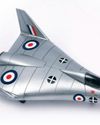
Scale Aircraft Modelling
Mustard
BAC's Low Speed Research Vehicle
2 mins
April 2023
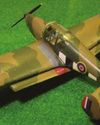
Scale Aircraft Modelling
KOVOZAVODY PROSTEJOV (KP) 1 Was Monty's Triple'
Brian Derbyshire
5 mins
November 2022
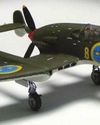
Scale Aircraft Modelling
SPECIAL HOBBY SAAB J-21A Review
From the late 1930s and early 1940s, with thewar in Europe raging around them andedging ever closer to its borders, the Flygvapnet had ordered Seversky P-35A aircraft, alongside Vultee Vanguards, but only sixty of the former and none of the latter were received.
8 mins
November 2022
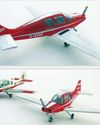
Scale Aircraft Modelling
VFR MODELS Beagle B.121 Pup
This is the first 3D printed kit I have come across and it is really rather fine.
3 mins
November 2022
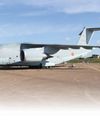
Scale Aircraft Modelling
Hearts in the sky RIAT RETURNS
After a nearly three-year hiatus RIAT returned to our skies with a hot show in every sense of the word. SAM’s Mike Verier and Ray Ball were there.
2 mins
November 2022
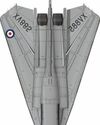
Scale Aircraft Modelling
Colour Conundrum
A Cancellation Conundrum - The RAF F-111s That Might Have Been Part 1
17 mins
November 2022

Scale Aircraft Modelling
COPPER CAUDRON Caudron G.Ill in 1/32
Copper State Models have carved a name for themselves in the last few years producing high quality plastic kits of World War One subjects.
10 mins
November 2022
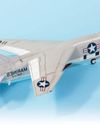
Scale Aircraft Modelling
Academy RF-8A Crusader Conversion in 1/72
USMC squadron VMCJ-2 used six RF-8As during the Crisis (designation F8U-1P until September 1962), with others held in reserve, two flying out of Guantanamo Bay, and four out of NAS Key West.
20 mins
November 2022
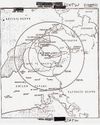
Scale Aircraft Modelling
The Cuban Missile Crisis
Modelling US reconnaissance assets in 1/72 Part 2: The Nuclear Confrontation
9 mins
November 2022
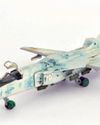
Scale Aircraft Modelling
UKRAINIAT striker
The Sukhoi Su-24 is an all-weather attack aircraft capable of supersonic speeds and characterised by its side-by-side pilot/navigator seating and its variable geometry wing.
4 mins
November 2022
Translate
Change font size

